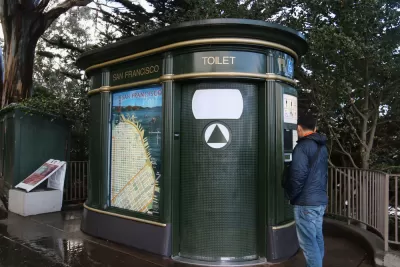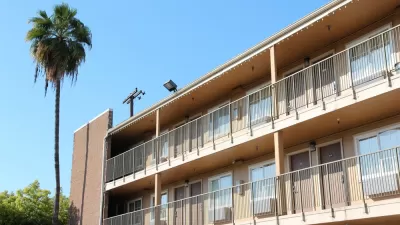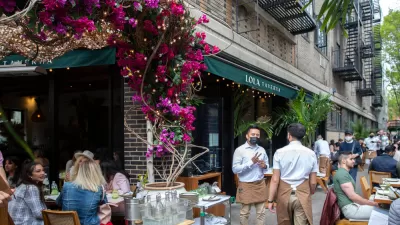Project for Public Spaces urges seven tangible actions for public space managers to support unhoused people during the coronavirus pandemic right now, and moving forward.

Projects at Project for Public Spaces Director of Programs and Projects Elena Madison recently hosted a series of webinars titled 'When “Stay at Home” Isn’t an Option: Public Spaces and Homelessness During COVID-19.' The webinars called upon expertise from representatives of Atlanta's Central Atlanta Progress and HOPE as well as Community Access and Fountain House in New York and focused on what public space managers can do to address the unique and intensified hardships faced by unhoused people during the pandemic.
"In this dire context, public space managers can play a vital role in helping the people who usually frequent their places survive this crisis by collaborating with local social service organizations. Public space managers are experts in observation and experimentation, and with some courage, they can put these skills to good use in helping the most vulnerable people in their community," asserts Nate Storring.
Storring summarized seven critical points made in the webinars, stressing the need to meet people where they are, in places they feel comfortable and safe, to connect them to housing. Unhoused people, however, have experienced a large-scale disruption of community making it more difficult to make connections and meet basic needs.
The PPS webinar also highlighted the need for personal protective equipment for both service providers and their clients. Included in this call for improved hygiene is a call for access to "readily available sanitation options like these could make a lasting change for people living outdoors."
New York City's Fountain House and Community Access distributed cell phones to clients before stores closed, but access to wifi and the challenges with storing belongings overnight have caused difficulty. One suggestion: public space managers could provide inexpensive lockers as storage options.
It is clear the challenges faced by unhoused people today are the result of "years of disinvestment in social services, public health, and public space," reminds Storring, calling on public space managers to work toward enabling public places to support people without houses both now and in the future.
FULL STORY: HOMELESSNESS & PUBLIC SPACE DURING COVID-19: SEVEN TAKEAWAYS

Maui's Vacation Rental Debate Turns Ugly
Verbal attacks, misinformation campaigns and fistfights plague a high-stakes debate to convert thousands of vacation rentals into long-term housing.

Planetizen Federal Action Tracker
A weekly monitor of how Trump’s orders and actions are impacting planners and planning in America.

In Urban Planning, AI Prompting Could be the New Design Thinking
Creativity has long been key to great urban design. What if we see AI as our new creative partner?

Massachusetts Budget Helps Close MBTA Budget Gap
The budget signed by Gov. Maura Healey includes $470 million in MBTA funding for the next fiscal year.

Milwaukee Launches Vision Zero Plan
Seven years after the city signed its Complete Streets Policy, the city is doubling down on its efforts to eliminate traffic deaths.

Portland Raises Parking Fees to Pay for Street Maintenance
The city is struggling to bridge a massive budget gap at the Bureau of Transportation, which largely depleted its reserves during the Civd-19 pandemic.
Urban Design for Planners 1: Software Tools
This six-course series explores essential urban design concepts using open source software and equips planners with the tools they need to participate fully in the urban design process.
Planning for Universal Design
Learn the tools for implementing Universal Design in planning regulations.
Gallatin County Department of Planning & Community Development
Heyer Gruel & Associates PA
JM Goldson LLC
City of Camden Redevelopment Agency
City of Astoria
Transportation Research & Education Center (TREC) at Portland State University
Jefferson Parish Government
Camden Redevelopment Agency
City of Claremont





























